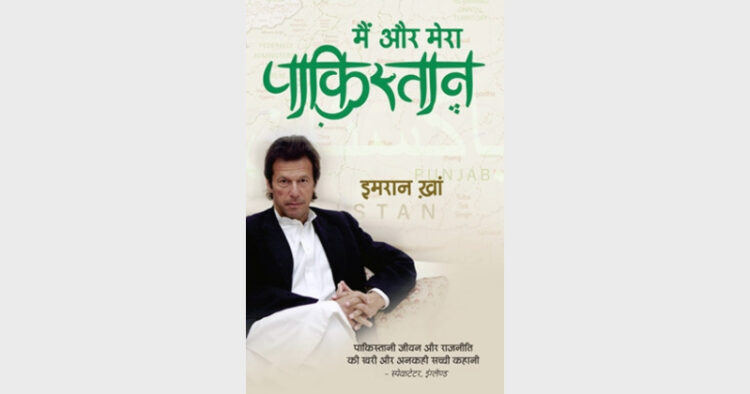Here is an autobiography of a famous cricketer-turned-politician, who has very deftly woven the thread of his personal life into the fabric of his motherland Pakistan, right from the time of its creation in 1947 to the unusual happenings of today. Twenty years after he retried from international cricket, Imran Khan has produced this third personalised account of his life. It goes without saying that one learns on reading this book about his life and the desire to survive and fight as becomes obvious when he narrates how as the leader of Tehreek-e-Insaaf, he fell from the forklift during an election rally and survived a murder bid on his life.
In his book, he covers the story of his fun-filled childhood, higher education at Oxford, an incomparable cricket career, marriage to and divorce from Jemima, discovery of his nation and Islam, the beginning of his political career and his ideals and dreams.
He remembers his days as a member of the West Pakistan under-19 team, and how, when he was on the last flight out of Dhaka in 1971 before the Pakistan army moved into East Pakistan, now called Bangladesh, he was shocked to hear from Ashaf-ul-Haque of Bangladesh about the life and deaths in the war that followed the Test series. Imran writes, “I vowed I would never again accept our government’s propaganda at face value or even back a military operation against our own people” It has become a fundamental pillar of his politics more than three decades later but it cannot be doubted that behind this didactic politician, spiritual and committed philanthropist lies hidden a bloody-minded competitor. His political adversaries know that he doesn’t back off, give up or run away.
Imran Khan refers to Pakistani politics with anger but about Islam, with humility and gratitude. When it comes to cricket, he remains the ambitious, imperious captain of Pakistani cricket team. He played cricket to raise funds and his cricket career climaxed in winning the World Cup 1992 at the age of 39 when he played with a ruptured cartilage. He has even been called Taliban Khan because of it. He says that outside Pakistan, he is known for his 21-year long cricket career but within his own country, he is known as leader of a political party endeavouring to strike a wide base.
Imran Khan praises MA Jinnah’s leadership but regrets that Pakistan could not prosper like India could because after Jinnah’s death, it did not get a leader who stayed long enough to provide stability as was done in India.
He was very close to his mother and after her death, he turned to the discovery of the richness of Islam and in which he was guided by writings of Iqbal, the poet-philosopher who is honoured as the spiritual founder of Pakistan. He was deeply impressed by Iqbal’s belief that the Muslim world would alter their own identity once they got their own. He has very telling words to say about his country. He writes, “Pakistan may not yet be called a failed state but it is fast moving in that direction.”
He says that in his country, freedom of press is a myth, the police and judiciary are corrupt and following 9/11, Pakistan has sacrificed its sovereignty to American needs. He concludes by saying that after being on the fringes of his country’s politics, he wants to move to the centre stage and that the time has now come for his party to take action.
– Manju Gupta
(The reviewer is a former Editor of National Book Trust)













Comments